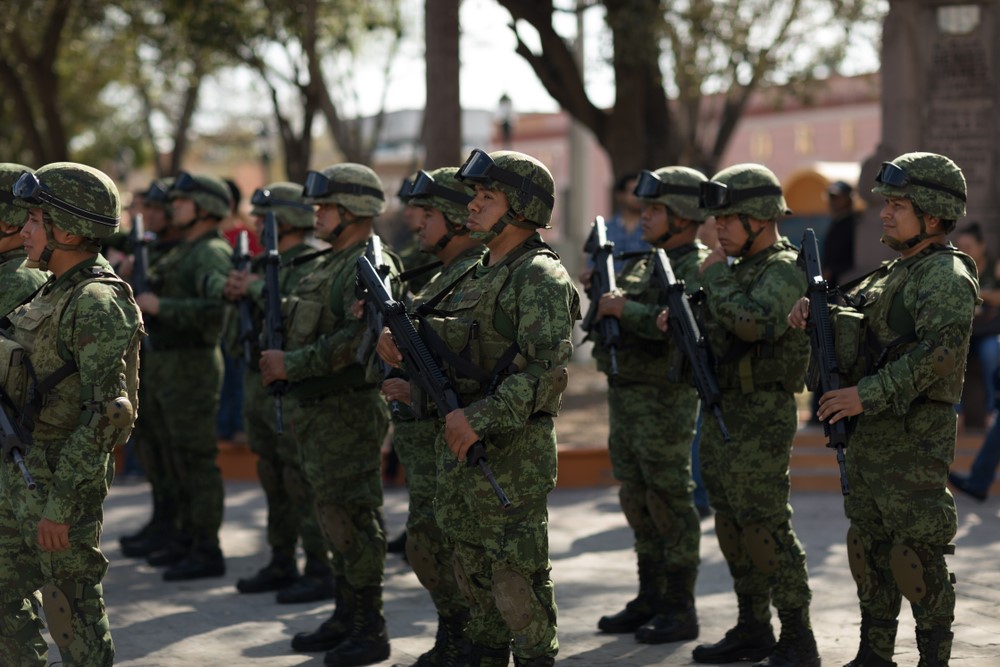By: Fernando Sánchez Tarasco / María Fernanda Castro González
As mentioned in the first part of this analysis regarding the “Militarization of Public Security in Mexico” -published in December 2022-, on September 9, 2022, the Mexican Congress approved a Decree amending 4 laws regarding the National Guard, with the purpose of -among others- transferring the administrative and operational control of the National Guard to the Mexican Ministry of Defense (“SEDENA”), and requiring that the high-level commanders of such National Guard come from military positions.
As a result, several appeal means were filed, including 5 actions of unconstitutionality, 3 constitutional controversies and 1 amparo claim, all of which, at the request of the President of the Chamber of Deputies, were attracted to be resolved as a priority matters by the Mexican Supreme Court of Justice -as made known through official communication No. 451/2022, dated December 9, 2022-.
In this sense, on April 17 and 18, 2023, the Plenary of the Mexican Supreme Court of Justice finally discussed and voted the Action of Unconstitutionality 137/2022 -filed by certain group of Senators against the Decree amending several provisions about the National Guard and Public Security- regarding the constitutionality of the referred Decree that intended to transfer the operational and administrative control of the National Guard to SEDENA.
In this regard, it should be recalled that Article 21 of the Mexican Constitution recognizes the National Guard as a public institution with a civilian nature, in the following literal terms:
“(…) Public security institutions, including the National Guard, will be civilian, disciplined, and professional. The Public Prosecutor’s Office and the police institutions of the three powers of government shall coordinate among themselves to fulfill the purposes of public security and shall form the National Public Security System, which shall be subject to the following minimum bases:(…)”
The resolution prepared by Judge González Alcántara Carrancá, pointed out that the transfer of control and change of assignment of the National Guard from the Ministry of Security and Citizen Protection to the SEDENA would be contrary to the civilian nature of the institution and would violate the express mandate to assign it to the Ministry of Security and Citizen Protection.
Therefore, in said resolution project it was proposed: (i) to declare the invalidity of Article 29, section IV of the Organic Law of the Federal Public Administration, in its normative portion that establishes that it is the competence of SEDENA to: “...hold the operational and administrative control of the National Guard, in accordance with the National Public Security Strategy defined by the Ministry of Security and Citizen Protection...”, as well as (ii) to declare invalid Articles 12 section I, 13 Bis and 23 of the National Guard Law, in the normative portions that stated that the operational control of the National Guard and its structure would correspond to the Ministry “...of National Defense...” -this is, SEDENA-.
Within the discussion of the referred resolution, the participation of Judge Aguilar Morales stands out, who considered as invalid the whole Decree under the consideration that Article 21 of the Mexican Constitution establishes that the public security institutions, including the National Guard, are of a civilian, disciplined, and professional nature, so the matter would be limited to determine whether the regulatory system would adjust or not to the block of constitutionality.
In this regard, he referred that in the Interamerican site it would be remarkable what was stated by the Inter-American Court of Human Rights when resolving the case “Cabrera García vs Mexico”, in the sense that the Governments must limit to the maximum the use of the armed forces for the control of common criminality or internal violence.
Therefore, said Judge considered that relevant Decree would be unconstitutional as it would disrupt the guarantee of civilian assignment of the National Guard established in Article 21 of the Mexican Constitution.
On the other hand, Judge Pardo Rebolledo stated that the challenged Decree would be contrary to Constitution, since the objective of the Mexican Congress would have been transfer to the SEDENA the control of the National Guard that previously corresponded to the Ministry of Security and Citizen Protection, which is contrary to the express text of Article 21 of the Constitution, in which the Permanent Constituent Power expressly established the civilian nature of the National Guard.
Judge Ríos Farjat pointed out that it would break the unity, hierarchy, and development of the Federal Public Administration, implying a security risk for society, since if the invalidity was not declared, the National Guard would be an organ that would respond to two Ministries, one with civilian and the other with military nature.
After the participation of the Judges of the Plenary of the Mexican Supreme Court of Justice, voting took place, in which there was a majority of eight votes in favor of declaring the invalidity of the aforementioned articles.
Finally, in a plenary session held on April 20, 2023, the effects of such declaration of invalidity were discussed, indicating that the governmental agencies involved would have sufficient time to readjust the administrative, budgetary, and operational control, considering that the Plenary of the Mexican Supreme Court of Justice indicated January 1, 2024, as the date for the effects of the invalidity to take effect.
On April 29, 2023, the United Nations High Commissioner for Human Rights urged Mexican authorities to promptly comply with the Mexican Highest Court’s ruling and stated that it is fundamental for a State where human rights are respected to guarantee the civilian nature of the National Guard in accordance with the Mexican Constitution and international human rights standards.
Thus, the decision of the Mexican Supreme Court of Justice constitutes a precedent of extreme importance, since in strict respect for the human rights involved, as well as the recommendations and resolutions issued by various international organizations, it forces the Mexican Government to readjust the path in matters of Public Security by reincorporating the control and operation of the highest public security agency -National Guard- to a public institution of a civilian nature -such as the Ministry of Security and Citizen Protection- without the interference of high military commanders.
Notwithstanding the foregoing, it is necessary that the Mexican Government fully comply with the order of the Supreme Court, abstaining from issuing new Decrees insisting on transferring the operational control of the National Guard to military forces, and generating instead the needed spaces for dialogue with the purpose of establishing legislative and operational strategies that reinforce the capacity of the civilian security forces.









